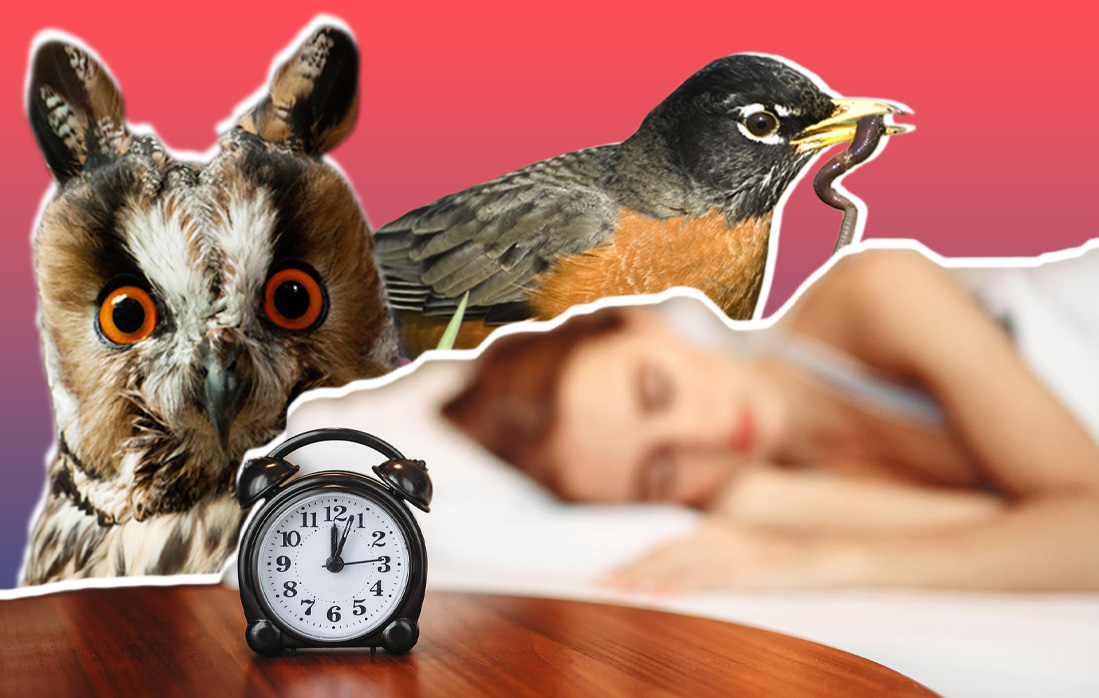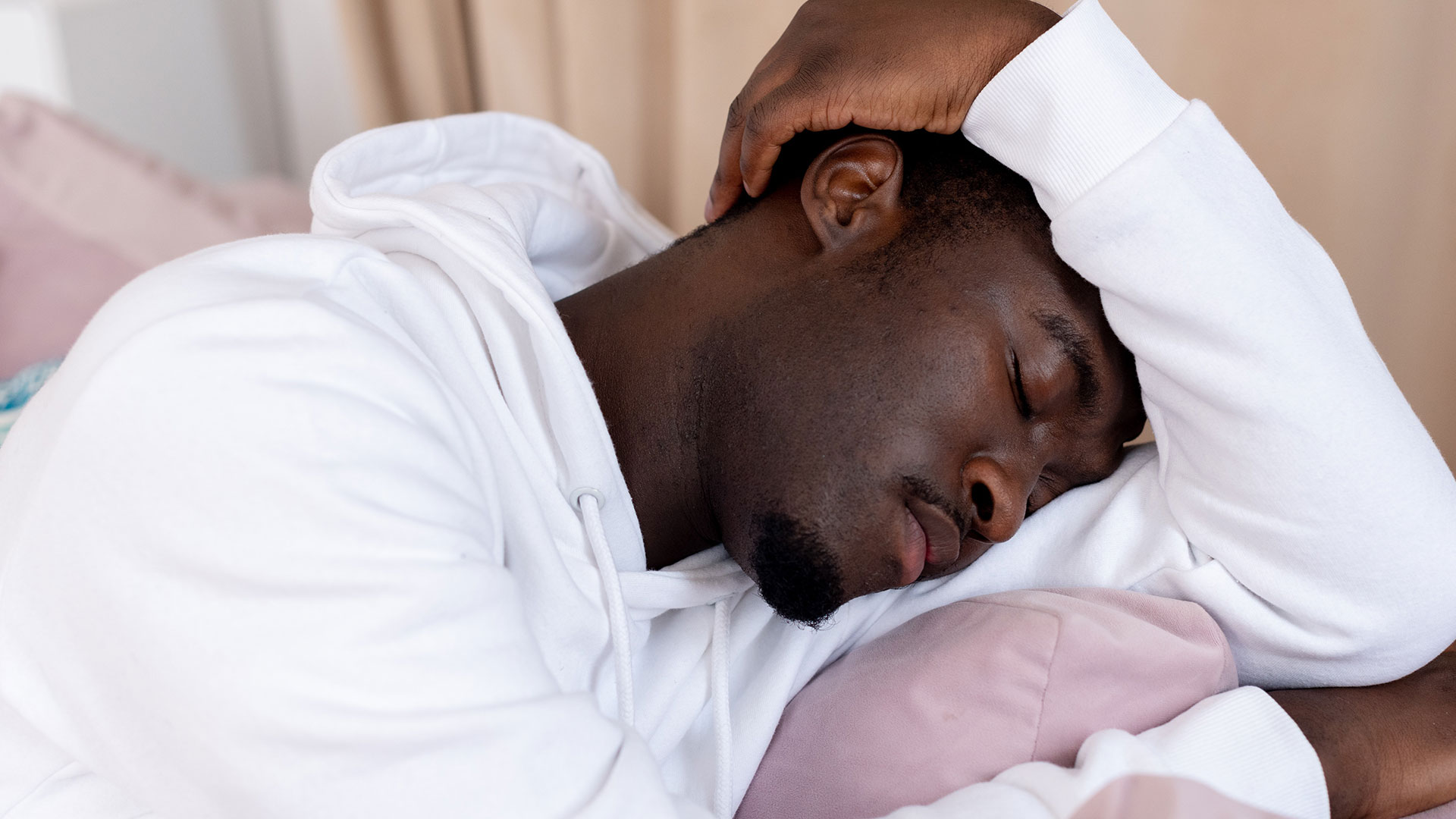
There’s a reason everyone seems to be waiting for the weekend, whether it’s Monday, Friday, or pretty much every day — they are exhausted. Waking up every day and flopping into bed exhausted at night inspired the phrase “burning the candle at both ends”. And for some time, people thought that you could just make up sleep later on, and feel well-rested again once you just got that nap, or got that one Saturday to sleep in. But it’s not so simple.
In a study published at the end of April in Occupational Medicine, Japanese researchers studied close to 2,000 participants who engaged in work for five days, then rested for two, the typical schedule of many workers around the world. (1) Then, they studied how much sleep they got on each type of day, and how it might relate to employee presenteeism, which is defined as being present at work but not truly present in your work (low productivity). In the age of “quiet quitting” and other workplace trends, presenteeism has recently been examined in relation to how it might impact business and how to manage it. A 2023 Fortune article reports that presenteeism costs American businesses $1.7 trillion, according to a Gympass survey. (2)
The researchers in the study concluded that sleep loss on work days can’t be made up with longer sleep on those days off. The study further revealed that increasing sleep off didn’t work especially if workers had short sleep durations on weekdays. So, if employers want to increase attendance and productivity, they have to look at the current schedule, and if it’s really allowing enough sleep time on weekdays.
The new research builds on previous studies analyzing the impact sleep might have on workplace productivity. A 2021 study found that cognitive behavioral therapy for insomnia (CBT-I) can be beneficial to improving sleep problems and decreasing presenteeism. (3)
Also, a 2022 study explored the effects of chronotypes of presenteeism in workers and found that specific chronotypes can indirectly impact presenteeism. (4) For early risers, an early bedtime led to higher productivity, and for workers who identify as night owls, a later wake-up time led to higher productivity rates.
Employers might also look to the level of engagement, creativity, and interest the work they are offering entails, as some research also shows that boredom at work can impact your sleep too. The tricky relationship between wanting well-rested, engaged workers, and work not being the source of stress causing difficult sleep is complex. Some companies have even turned to bribing their workers to get enough sleep. And of course, there’s an app for that — SleepSync, among other apps, helps shift workers get more sleep.
But, apps and extra pay and other attempts at sleep replacement might never get you completely out of sleep debt, or your number of lost sleep every week that is really hard to “repay” yourself.
Given the fact that most employees can’t control their employers’ decisions around start times, here are a few tips to help them stop relying on weekends for sleep “catch up” attempts:
- Go to bed earlier — it’s not exciting, but it does work
- Practice strong sleep hygiene — eliminate blue light, caffeine, and stimulating activities like exercise in the hours before bed
- Work with your mental health providers to ensure work isn’t stressing you out and preventing sleep in the first place, or talk to your boss if it is, and some slight changes may improve things for your
With a bit of a sleep schedule redesign, you’ll find yourself more productive than ever at work, or at least not yawning through your afternoon meetings anymore.

Everything to Know About SleepSync, a New App Designed to Help Shift Workers Catch More Zs

Can You Become a Morning or Night Person? Experts Weigh In.

Excessive Sleepiness: Everything You Need To Know

Night Shift Impacts Sleep For Some More Than Others, New Research Shows
Sources
1. Y Takano, I Okajima, T Ando, S Iwano, Y Inoue, Presenteeism and sleep duration on workdays and days off, Occupational Medicine, 2024;, kqae028, https://doi.org/10.1093/occmed/kqae028
2. Thier, Jane; “Prioritizing wellness at work could relieve America of its $1.5 trillion presenteeism problem in which employees are just pretending to work, 100-page report finds,” Fortune.com; https://fortune.com/2023/12/14/worker-presenteeism-costs-us-economy-trillions-solution/; December 14, 2023.
3. Takano Y, Iwano S, Aoki S, Nakano N, Sakano Y. A systematic review of the effect of sleep interventions on presenteeism. Biopsychosoc Med. 2021 Nov 17;15(1):21. doi: 10.1186/s13030-021-00224-z. PMID: 34789296; PMCID: PMC8597302.
4. Akiyoshi Shimura, Katsunori Yokoi, Ko Sugiura, Shinji Higashi, Takeshi Inoue,
On workdays, earlier sleep for morningness and later wakeup for eveningness are associated with better work productivity,
Sleep Medicine, Volume 92, 2022, Pages 73-80, ISSN 1389-9457, https://doi.org/10.1016/j.sleep.2022.03.007.